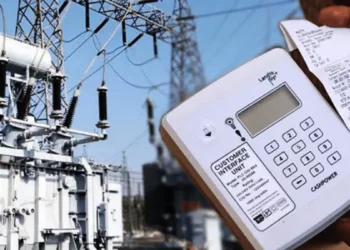In a landmark achievement, the Federal Government of Nigeria has successfully raised a staggering sum of approximately N6.658 trillion through the issuance of Nigerian Treasury Bills (NT-Bills) in 2023. This notable figure reflects a remarkable 40.4 per cent increase compared to the N4.74 trillion obtained through NT-Bills in the preceding year of 2022.
The data tracked by NATIONAL ECONOMY and sourced from the Central Bank of Nigeria (CBN), reveals that the total NT-Bills subscription for the year 2023 reached an impressive N23.507 trillion. A detailed breakdown of the amount raised is provided on a monthly basis:
• January: N277.468 billion (Two auctions on January 11 and January 25)
• February: N680.566 billion (Two auctions on February 8 and February 22)
• March: N631.838 billion (Three auctions on March 8, 15, and 29)
• April: N281.099 billion (Two auctions on April 12 and 26)
• May: N324.428 billion (Two auctions on May 10 and 24)
• June: N404.509 billion (Three auctions on June 7, 14, and 30)
• July: N406.099 billion (Two auctions on July 12 and 26)
• August: N457.204 billion (Two auctions on August 9 and 23)
• September: N544.059 billion (Three auctions on September 6, 13, and 28)
• October: N406.896 billion (Two auctions on October 11 and 25)
• November: N1.059 trillion (Two auctions on November 8 and 22)
• December: N1.185 trillion (Three auctions on December 6, 13, and 27)
It is worth noting that treasury bills, theoretically short-term government-backed securities issued by the Central Bank, serve as instruments for raising funds and act as a monetary policy tool for controlling inflationary pressures.
This substantial achievement in NT-Bill earnings comes amid the backdrop of Nigeria recording its highest inflation rate since 2005. Financial experts grapple with the unusual scenario, citing the exchange rate as the primary driver of inflation.
Dr Muda Yusuf, the Director General of the Centre for the Promotion of Private Entreprises, noted, “It is very difficult to draw a strong correlation between the treasury bills that have been issued and the inflation rate,” adding, “Summarily, the impact of monetary policy on inflation right now is very minimal.”
Essentially, treasury bills are used to mop up excess liquidity from the banking system to affect the demand side of inflation.
However, while the Nigerian scenario appears to defy regular economic theories, Dr Muda noted, “If you compare these treasury bills to the injection of Ways and Means financing in the economy, the gap is still very huge.” He added, “The rate of liquidity growth emanating from Ways and Means is much higher than the treasury bills we’re talking about.”
Speaking about the key objectives of treasury bills, Dr Muda Yusuf noted that if the objective of the treasury bills were to mop up excess system liquidity, maybe, it could have an effect. Then he noted that if the bills were issued for the objective of raising funds for government spending, then it is just cyclical liquidity which goes back into the system.
In the interplay between the amount raised through NT-Bills, the inflation rate, and the exchange rate, it is safe to assume that in the final months of the year, there has been an increase in foreign portfolio investors in Nigerian securities, hence even in local treasury bills.
According to the NGX, foreign portfolio participation surged to 23.74 per cent in November 2023, the highest recorded throughout the year.
This surge signifies growing optimism in Naira-denominated securities, aligning with efforts by the Yemi Cardoso-led CBN to clear foreign exchange backlogs and stabilize the exchange rate in accordance with market realities.





